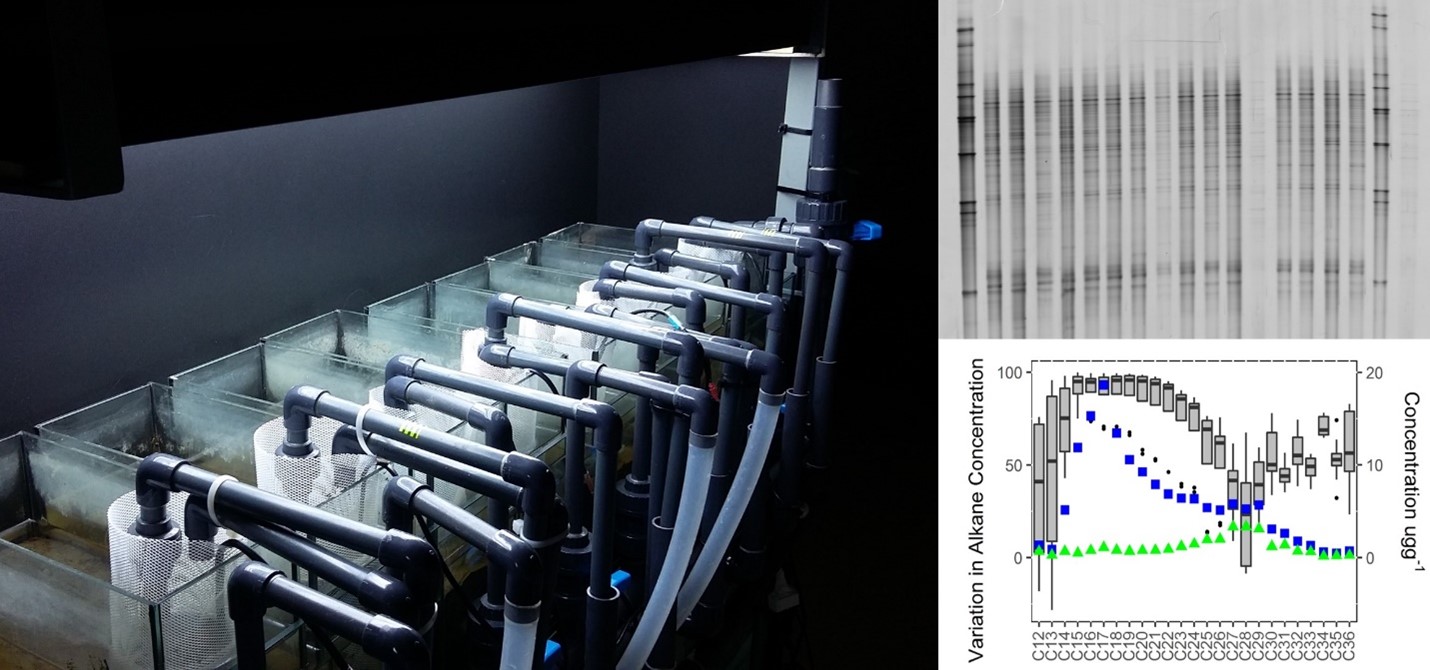
Microbiome science, driven by advances in DNA sequencing, has unveiled the crucial role of microorganisms in ecosystems and their host interactions, impacting nutrition, growth, and protection. Harnessing this knowledge, we explore the use of humic substances (HS) as natural microbial modulators to aid the recovery of organisms in areas persistently contaminated with oil hydrocarbons (OH). Our focus is on the common cockle, a prized European bivalve of inmportant value to the Ria de Aveiro socio-ecological system. However, bivalve farming expansion faces spatial constraints near ports and transport hubs with contaminated marine sediments. Recent research indicates that HS supplementation can enhance beneficial bacteria in aquaculture and mitigate stress. HS, natural organic compounds, are known for their ecological significance, including interaction with pollutants like PAHs. Our study seeks to investigate the potential of HS to promote microbial-mediated remediation and organism resilience, which could revolutionize the sustainable use of bivalves in impacted environments.
